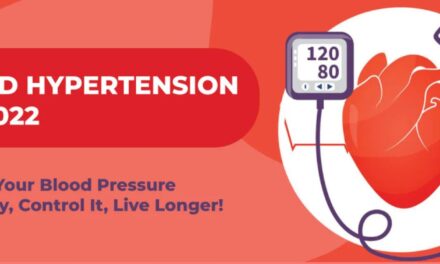Each year, September 21st is marked globally as World Alzheimer’s Day, a day dedicated to raising awareness about Alzheimer’s disease (AD) and other dementias. Under the leadership of Alzheimer’s Disease International (ADI), the entire month of September is observed as World Alzheimer’s Month, with campaigns focusing on reducing the stigma and promoting early diagnosis. This year’s theme, “Know Dementia, Know Alzheimer’s,” brings into focus a crucial message: understanding dementia is key to combating its rise.
The Growing Dementia Crisis
Dementia has been termed “the epidemic of our century” in light of a rapidly aging global population. An estimated 57 million people currently live with dementia worldwide, with over two-thirds of cases occurring in low- and middle-income countries (LMICs). India alone accounts for 8.8 million people over the age of 60 living with dementia, according to the Longitudinal Aging Study in India (LASI). The two primary causes of dementia are Alzheimer’s disease and vascular dementia, with Alzheimer’s accounting for up to 70% of cases.
While aging is a significant risk factor, dementia is not an inevitable part of growing old. It is increasingly viewed as a lifestyle disorder, influenced by factors accumulated over decades. Alzheimer’s disease, for instance, develops over a 20-30 year period, with brain pathology beginning to form in early adulthood and progressing silently. By the time AD manifests as symptomatic dementia, neurodegenerative damage has already taken root, making prevention a critical focus.
Preventing Dementia: A Life-Course Approach
Though research into anti-dementia drugs continues, the emphasis on preventive neurology is seen as the best strategy to tackle this crisis. This is echoed in findings from the 2020 Lancet Commission Report, which suggests that up to 40% of dementia cases could be prevented or delayed by addressing 14 modifiable risk factors throughout life. These include low education, hypertension, smoking, obesity, depression, and physical inactivity.
The report proposes adopting a life-course approach to dementia prevention, similar to strategies used in preventive cardiology. Brain-health promotion should begin early in life, with interventions focusing on maintaining cognitive reserve, neuroplasticity, and brain resilience.
Brain-Healthy Lifestyles: Keys to Dementia Prevention
To promote healthy brain aging (HBA) and delay the onset of dementia, individuals must adopt brain-healthy lifestyles. These include:
- Physical Activity: Engaging in regular exercise such as walking, cycling, or gardening.
- Mental Stimulation: Activities like reading, solving puzzles, or learning new skills promote cognitive function.
- Social Integration: Maintaining an active social life and pursuing hobbies can help keep the brain engaged.
- Healthy Diet: The Asian-Mediterranean diet, rich in fish, fruits, and vegetables, has been shown to support brain health.
- Stress Management: Coping with stress, anxiety, and depression through mindfulness practices like yoga and meditation is vital.
- Cardiovascular Health: Maintaining a healthy body mass index (BMI), controlling blood pressure, and treating diabetes help preserve cognitive function, as heart health is closely linked to brain health.
A Public Health Initiative for Future Generations
One of the most significant takeaways from this year’s World Alzheimer’s Day is the importance of dementia education across all age groups. Raising awareness about brain health from a young age and promoting brain-healthy habits in schools, workplaces, and communities can contribute to reducing dementia risk in future generations.
Public health initiatives that emphasize a “cradle-to-grave” perspective on brain health are essential for addressing the dementia epidemic in India and worldwide. By understanding dementia as a lifestyle disorder, society can be empowered to make informed choices that promote long-term brain health and well-being.
As Louis Pasteur once said, “When meditating over a disease, I never think of finding a remedy for it, but instead a means of preventing it.” This sentiment rings true today as we confront the global dementia crisis, underscoring the importance of prevention over cure.
World Alzheimer’s Day 2024 calls for us all to take action—by knowing dementia and knowing Alzheimer’s, we can work toward a future where dementia prevention is within everyone’s reach.












